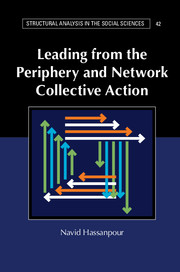- A
- A
- A
- ABC
- ABC
- ABC
- А
- А
- А
- А
- А
- HSE University
- Faculties
- Faculty of Social Sciences
- School of Political Science
- News
- Navid Hassanpour's new book about leadership in contentious collective action
3 Krivokolenny Pereulok, Moscow, 103070.
Phones:
8 (495) 772-95-90 *22833,
8 (495) 772-95-90 *22448
Fax: 8 (495) 772-95-90 *12556
Email: politfac@hse.ru
Washington: Free Russia, 2018.
Petrov N., Hale H. E., Lipman M.
Russian Politics. 2019. Vol. 4. No. 2. P. 168-195.
Arbatli E.
In bk.: Oxford Research Encyclopedia of Politics (Living Edition). Oxford University Press. P. 1-20.
Sorokina A., Maximenkova M., Kasamara V.
Political Science. PS. Высшая школа экономики, 2019. No. 71.

Navid Hassanpour's new book about leadership in contentious collective action
 The book ‘Leading from the Periphery and Network Collective Action’ by Associate Professor of the School of Political Science of HSE Navid Hassanpour was issued by Cambridge University Press.
The book ‘Leading from the Periphery and Network Collective Action’ by Associate Professor of the School of Political Science of HSE Navid Hassanpour was issued by Cambridge University Press.
Political revolutions, economic meltdowns, mass ideological conversions and collective innovation adoptions occur often, but when they do happen, they tend to be the least expected. Based on the paradigm of 'leading from the periphery', this groundbreaking analysis offers an explanation for such spontaneity and apparent lack of leadership in contentious collective action. Contrary to existing theories, the author argues that network effects in collective action originating from marginal leaders can benefit from a total lack of communication. Such network effects persist in isolated islands of contention instead of overarching action cascades, and are shown to escalate in globally dispersed, but locally concentrated networks of contention. This is a trait that can empower marginal leaders and set forth social dynamics distinct from those originating in the limelight. Leading from the Periphery and Network Collective Action provides evidence from two Middle Eastern uprisings, as well as behavioral experiments of collective risk-taking in social networks.
Contents: 1. Mobilization from the margins; 2. Decentralization of revolutionary unrest: dispersion hypothesis; 3. Vanguards at the periphery, a network formulation; 4. Civil war and contagion in small worlds; 5. Peripheral influence, experimentations in collective risk taking; 6. Decentralization and power, novel modes of social organization; Appendix.
Navid Hassanpour
School of Political Science: Associate Professor
- About
- About
- Key Figures & Facts
- Sustainability at HSE University
- Faculties & Departments
- International Partnerships
- Faculty & Staff
- HSE Buildings
- HSE University for Persons with Disabilities
- Public Enquiries
- Studies
- Admissions
- Programme Catalogue
- Undergraduate
- Graduate
- Exchange Programmes
- Summer Schools
- Semester in Moscow
- Business Internship
- © HSE University 1993–2025 Contacts Copyright Privacy Policy Site Map
- Edit

